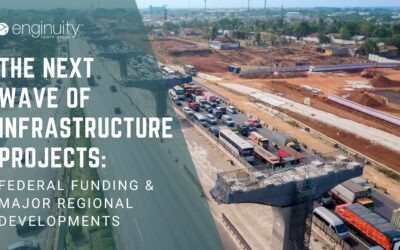The world around us is shaped by the work of structural engineers. These professionals design and analyze the buildings, bridges, towers, and other structures that form the backbone of modern society. Whether ensuring the stability of a skyscraper or developing sustainable infrastructure solutions, structural engineers require a distinct blend of technical, analytical, and interpersonal skills. Let’s explore the key abilities necessary to thrive in this challenging and rewarding field.
Analytical and Problem-Solving Skills
At the core of structural engineering lies the ability to analyze complex problems and devise effective solutions. Structural engineers must assess potential challenges, like how a building will withstand different environmental conditions or how a bridge’s design will accommodate traffic loads. This analytical mindset helps them interpret engineering data, run simulations, and create designs that meet stringent safety standards.
The problem-solving nature of the job often involves troubleshooting unexpected issues during construction, making critical decisions quickly to keep projects on track. Thus, strong analytical thinking and the ability to identify innovative solutions are crucial.
Mathematical and Technical Expertise
A solid grasp of mathematics and physics is fundamental for structural engineers. Advanced knowledge of calculus, linear algebra, and statistics is necessary for accurate calculations of load distributions and material strength. Engineers also rely on physics principles like mechanics, dynamics, and thermodynamics to understand how structures respond to forces such as gravity, wind, and seismic activity.
Moreover, technical expertise with specialized software, such as AutoCAD and structural analysis programs, helps structural engineers create precise models and optimize designs. Proficiency in computer-aided design (CAD) and Building Information Modeling (BIM) tools is essential for modern structural engineers, enabling them to visualize and refine projects before construction begins.
Communication and Collaboration
Structural engineers work closely with a variety of stakeholders, including architects, contractors, clients, and regulatory authorities. Effective communication is key to ensuring that project requirements are understood and implemented correctly. Engineers must convey technical information clearly through written reports, verbal discussions, and visual presentations.
Collaboration skills are also crucial, as structural engineers often operate within multidisciplinary teams. Coordinating with architects and construction managers ensures that designs align with aesthetic and functional requirements. Understanding and incorporating feedback while maintaining structural integrity requires a collaborative and adaptable mindset.
Attention to Detail and Project Management
Structural engineering demands exceptional attention to detail. A minor oversight in calculations or design specifications could result in costly delays, safety issues, or regulatory non-compliance. Engineers must meticulously review designs, simulations, and construction plans to prevent errors.
Additionally, project management skills enable structural engineers to oversee projects from inception to completion. Managing timelines, budgets, and resources while coordinating multiple stakeholders requires strong organizational abilities and a proactive approach.
Creative and Sustainable Design Thinking
In an era focused on sustainable development, structural engineers must incorporate environmental considerations into their designs. Creativity is essential for developing structures that balance functional, aesthetic, and ecological requirements. Engineers are increasingly designing with renewable materials, energy efficiency, and lifecycle sustainability in mind.
Creative thinking also helps engineers design structures that blend seamlessly with the environment while accommodating social needs. An ability to visualize innovative designs and refine them through analysis is critical.
A Dynamic Skill Set for a Dynamic Field
Structural engineers require a well-rounded skill set that combines technical expertise, analytical thinking, and effective communication. Success in this field hinges on the ability to solve complex problems, work collaboratively, and manage projects efficiently. As engineering evolves, creativity and sustainable design thinking will continue to play a central role in developing infrastructure that meets the challenges of tomorrow. Whether designing a futuristic skyscraper or reinforcing existing bridges, structural engineers are the architects of a more resilient world.







0 Comments